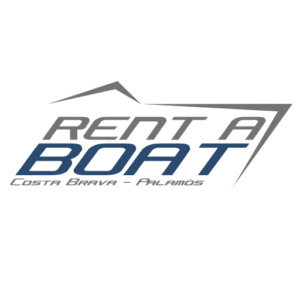Recreational sailing is an exciting activity that offers a unique way to explore and enjoy the sea. For those who wish to experience the thrill of sailing without the need for a licence, there are options available such as the small and easy to handle boats that we offer at Rent Boats Costa Brava. However, sailing without a licence does not mean that you can do without safety. Here we offer you a complete guide with tips and best practices to ensure safe and enjoyable sailing on a boat without a licence.
Knowing the limitations and regulations
1. Types of boats allowed:
In many countries, unlicensed persons may sail boats up to a certain length or with low-powered engines. It is important to be aware of local regulations and to make sure that the boat you rent meets these requirements.
2. Permitted areas:
There are specific areas where unlicensed boating is allowed. Generally, these areas are close to the coast and in calm waters. Find out about the permitted areas and respect the restrictions to avoid penalties and ensure your safety.
Preparation before departure
1. Familiarise yourself with the boat:
Before setting sail, take the time to familiarise yourself with the boat. Learn how the engine, rudder, navigation lights and other essential equipment work. If it’s your first time sailing, ask the charter company for a brief instruction.
2. Inspect the equipment:
Check that the boat is in good condition. Check the engine, fuel level and that all safety equipment is present and in good condition. This includes life jackets, a first aid kit, fire extinguishers, flares, mirror, horn and signalling and geolocation devices as is the case with Rent Boats Costa Brava.
3. Planning your trip:
Plan your route and share your plans with someone on land. Make sure you have a map of the area and check the weather conditions before setting off. Avoid sailing in adverse conditions, especially if you are a beginner.
Advice during navigation
1. Use of life jackets:
It is crucial that everyone on board wears life jackets at all times. Accidents can happen at any time, and a life jacket can make all the difference.
2. Constant vigilance:
Keep a constant watch on your surroundings. Watch for other boats, buoys and possible obstacles. Navigate at a moderate speed and keep a safe distance from other boats and the shore.
3. Communication:
Carry a mobile phone in a waterproof bag and, if possible, a portable VHF radio. These devices are essential for calling for help in an emergency.
4. Navigation rules:
Respect navigation rules and maritime signals. Keep to the right in channels and give priority to larger, less manoeuvrable vessels.
5. Engine control and manoeuvring:
Practice engine control and manoeuvring in a safe area before venturing further out. Learn how to start and stop the engine, turn the boat and dock safely.
Emergency response
1. Man overboard:
If someone falls into the water, stay calm. Shout “man overboard” and launch a flotation device. Manoeuvre the boat to facilitate rescue, always keeping the individual in sight.
2. Engine failure:
If the engine stops, try to locate the problem. If you cannot resolve it, use oars if you have them to get closer to shore or call for help. Remain calm and follow emergency procedures.
3. Adverse weather conditions:
If the weather worsens, seek shelter immediately. Head for the nearest shore and wait for conditions to improve before proceeding. Never attempt to ride out a storm if you can avoid it.
4. Medical emergency:
In the event of a medical emergency, administer first aid and call for help. Remain calm and follow the instructions of the emergency services until help arrives.
Enjoying the sea safely
Boating without a licence can be an amazing experience if done responsibly. Here are some additional tips for maximum enjoyment:
1. Continuing education:
Consider taking basic boating and safety courses. Many organisations offer short courses that can provide you with essential knowledge for safe boating.
2. Respect for the environment:
Sail responsibly and respect the environment. Don’t litter and avoid damaging coral reefs and marine life. Sustainable sailing is key to preserving our oceans.
3. Safe fun:
Take the opportunity to engage in water activities such as fishing, snorkelling or just relaxing on board. Always follow the safety rules for each activity and make sure all participants are informed and properly equipped.
Conclusion
Boating without a licence can be an exciting and accessible adventure, as long as it is done with proper preparation and respect for safety rules. By following these tips and best practices, you can enjoy the beauty of the sea with peace of mind and confidence. Remember that safety is everyone’s responsibility on board, and a proactive approach can make every voyage safe and memorable. Happy sailing!

